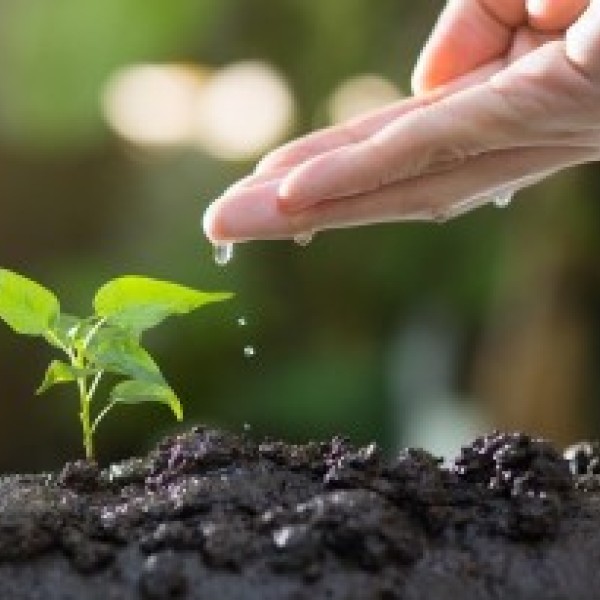To fill that research gap, a team of soil scientists in Cornell University’s College of Agriculture and Life Sciences (CALS), conducted a state-funded project to characterize soil health across New York state agricultural lands. Published in September 2020, the 51-page report, “Characterization of Soil Health in New York State,” establishes soil health guidelines that consider the effects of region, soil type and cropping system.
“Now farmers can use metrics and aspirational goals that are relevant to their fields and production practices to calibrate their management,” said Joseph Amsili, project leader and extension associate in the Soil and Crop Sciences Section of CALS’ School of Integrative Plant Science (SIPS).
As part of the New York Soil Health initiative, the research team analyzed 1,456 soil samples from a variety of cropping systems — including annual grain, dairy cropping, pastures, processing vegetables and mixed vegetables. Every sample underwent the Comprehensive Assessment of Soil Health (CASH) analysis at the Cornell Soil Health Laboratory to assess biological, physical and chemical properties.
“We established the soil health lab 14 years ago as a world-first. It really was focused on the practical aspects, a lab for helping farmers improve the health of their land,” said Robert Schindelbeck, director of the Soil Health Lab.
Schindelbeck is also an extension associate in the Soil and Crop Sciences section of SIPS. He said, “In the past four years, we’ve processed about 15,000 samples, and a lot of the analysis in the report is based on the samples from New York.”
The CASH test reveals details about the soil’s overall quality, organic matter content, microbial activity, structure, level of compaction and the amount of plant-available water that the soil can hold. The analysis then interprets these values based on soil texture class.
Emmaline Long ’12, M.S. ’17, crop production manager at CY Farms in Elba, New York, said, “The [CASH] test has given us tremendous insights into the health of our soils and helps us to make appropriate management decisions.”
In the state-wide survey, the soil testing demonstrated that soil texture, varying crop cover and different management systems all exert large influences on the biological, physical and chemical health of the soil.
“We’ve always known that soil texture is a key control factor, but we now established that cropping practices are equally impactful,” said Harold van Es, co-leader and professor in the Soil and Crop Sciences Section of SIPS.
“This means that farmers have tremendous potential to improve their soil health by incorporating sustainable soil management practices,” Amsili said, “including cover cropping, perennial forages, reduced tillage, and application of organic amendments.”
The top three findings revealed:
- Pastures maintain the best soil health due to a continuous living plant cover and an absence of tillage.
- Dairy crops and mixed vegetables (mostly organic) have intermediate soil health due to greater organic matter inputs, cover crops and perennial forages.
- Annual grain and processing vegetable systems tend to yield the lowest soil health due to greater exports of carbon and nutrients from the farm, more intensive tillage and a lack of organic amendments.
These insights will enable New York state policymakers, agricultural professionals and farmers to set better goals for improving soil health and carbon capture based on their unique soil conditions and management practices.
“Healthy soils are central to so many of our agricultural and environmental objectives in New York state, like growing fresh, nutritious foods and achieving the state’s aggressive climate agenda,” said Richard A. Ball, New York State Department of Agriculture and Markets commissioner. “Cornell CALS’ Soil Health Initiative fosters critical research and outreach that support New York’s efforts to improve soil health practices on the farm. With communities across the state increasingly focused on the many benefits of healthy soils, our partnership with Cornell’s Soil Health program to advance farm sustainability and productivity is more important now than ever before.”
Financial support for this project was provided by the New York State Environmental Protection Fund and administered by the New York State Department of Agriculture and Markets.
Collaborators include Kirsten Kurtz, manager of the Soil Health Lab, David Wolfe, professor in the Horticulture Section of SIPS, and Galia Barshad, service technician in the Soil Health Lab.
Kitty Gifford is a communications specialist for the New York Soil Health Initiative, a project supported by Cornell CALS, the New York State Department of Agriculture and Markets, and the United States Department of Agriculture Resources Conservation Service.





